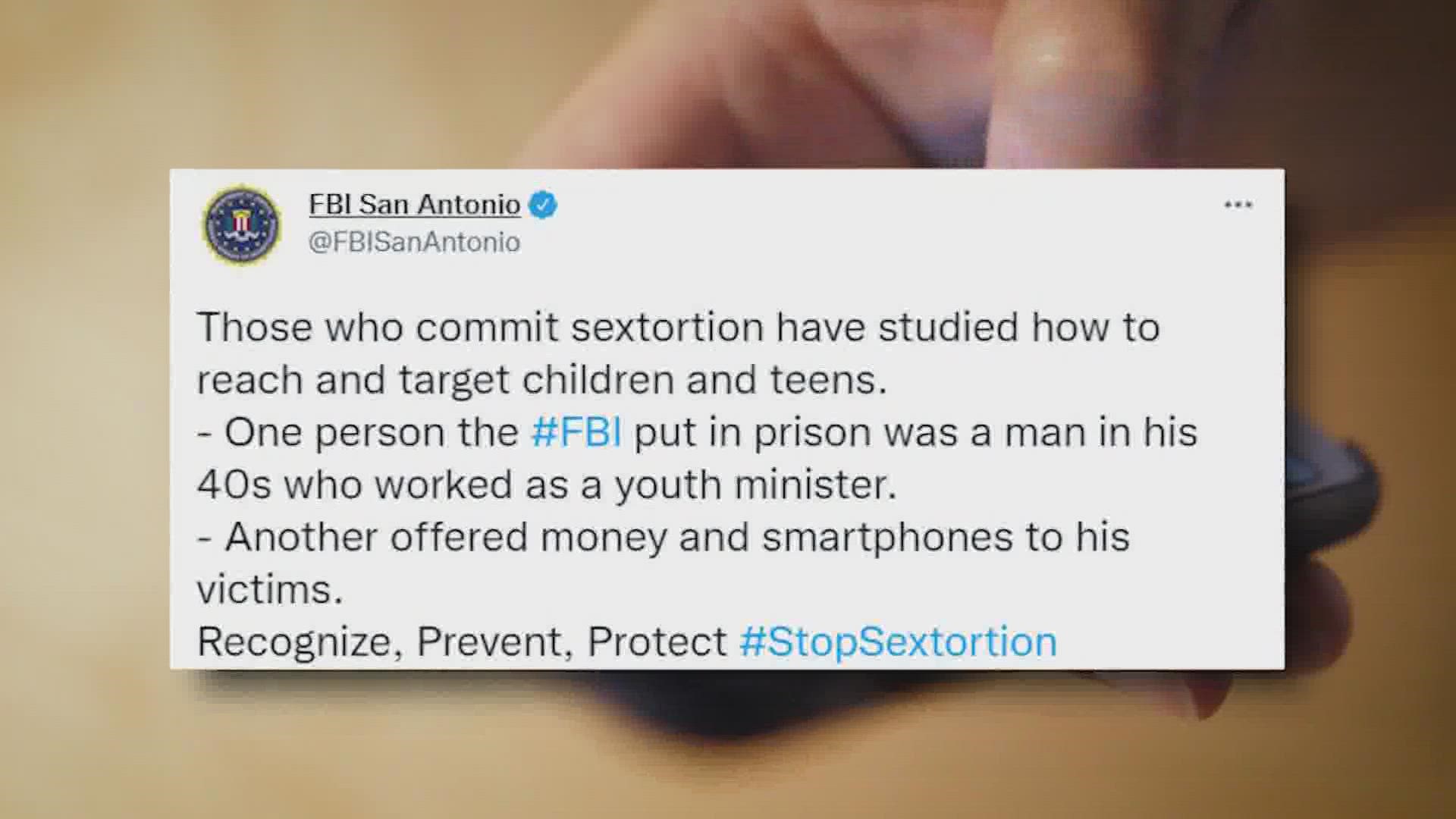CIBOLO, Texas — The Cibolo Police Department is warning parents they are seeing an increase in reported cases of Sextortion, specifically targeting teens and young adults.
"Sextortion involves victims being threatened or coerced or blackmailed into sending money or explicit images online and can happen on any social media site, app, or game where people meet to communicate," said Cibolo Police. "The most common places where Sextortion occurs is on Snapchat and Instagram but can also occur on children’s games such as Roblox or Minecraft."
The victim usually thinks they're talking with someone their own age who is interested in a relationship. They're asked to send a revealing or nude photo of themselves often times after first receiving a revealing or nude photo first from the suspect. After the criminals have one or more pictures of the victim they will threaten or blackmail the victim into sending money with threats that the images will be shared publicly with others on the social media site. Teens and young adults who become involved in a sextortion incident are embarrassed and often don't know where to turn for help. The stress from the situation has caused some teens in other areas of the United States to take their own lives.
Teens and young adults need to know that they can talk to someone willing to help should they become involved in one of these situations.
Police, as well as the FBI recommend that all parents with children who have access to online content talk to their kids about the dangers.
So how do you protect your kids? The FBI recommends the following:
- Be selective about what you share online. If your social media accounts are open to everyone, a predator may be able to figure out a lot of information about you.
- Be wary of anyone you encounter for the first time online. Block or ignore messages from strangers.
- Be aware that people can pretend to be anything or anyone online. Videos and photos are not proof that people are who they claim to be. Images can be altered or stolen. In some cases, predators have even taken over the social media accounts of their victims.
- Be suspicious if you meet someone on one game or app and this person asks you to start talking on a different platform.
- Be in the know. Any content you create online—whether it is a text message, photo, or video—can be made public. And nothing actually "disappears" online. Once you send something, you don’t have any control over where it goes next.
- Be willing to ask for help. If you are getting messages or requests online that don’t seem right, block the sender, report the behavior to the site administrator, or go to an adult. If you have been victimized online, tell someone.
For more information on Sextortion you can access resources and information here: CLICK HERE

